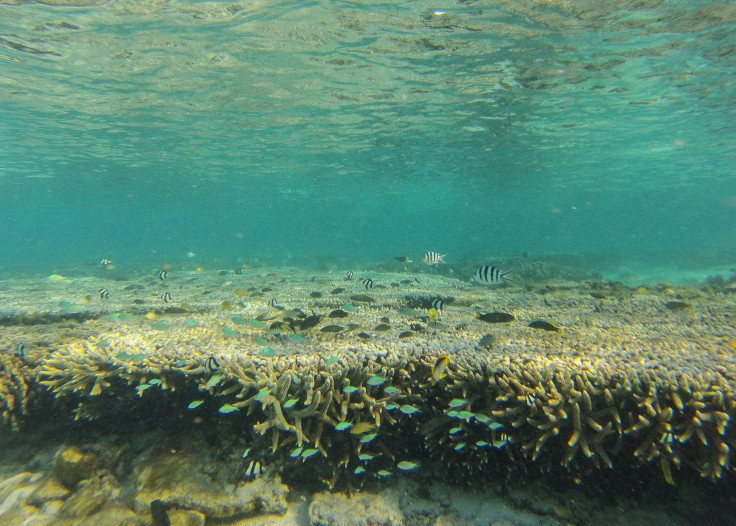Pacific Coral Bleaching And Manganese Content Point To Imminent Spike In Global Temperatures

Researchers monitoring the health of coral reefs in the Pacific Ocean have sounded an alarm over widespread coral bleaching -- an effect of warming and acidifying oceans -- in a new study published Monday in the journal Nature Geoscience. Moreover, the researchers warned, based on analysis of corals off the coasts of remote islands in the Pacific, that a spike in the rate of rise of global temperature was imminent.
The researchers, led by Diane Thompson of the National Center for Atmospheric Research in the U.S., found that over the last decade, strong Pacific trade winds had contributed to a slowdown in the rise of surface temperatures. As a result of these strong winds, even though the amount of greenhouse gases being pumped into the atmosphere increased, more heat is mixing up in the subsurface ocean, leaving less heat in the atmosphere. Over the years, a slower-than-expected increase in temperatures, on land and at sea, led many to speculate that global warming has entered a period of relatively little change in average temperatures -- the so-called “hiatus” in temperature rise.
However, based on studies conducted on coral reefs -- delicate marine biodiversity hotspots that grow in symbiosis with algae --near the Marshall Islands and Kiribati, scientists found that variations in the speed of trade winds, which blow from east to west, were directly linked to the rate of global temperature rise and that layers of the coral reefs could be used to determine how climate has changed over time.
The researchers analyzed samples taken from corals in Kiribati to reconstruct the history of the Pacific trade winds between 1894 and 1982 by measuring the changes in the amount of manganese in their skeletons. Manganese is released from the corals when strong bursts of winds from the west stir up sediments at the bottom of lagoons near the corals. As a result, manganese spikes are common when trade winds die down.
Researchers found that periods when there was a reduction in the level of manganese in the layers of the coral reefs directly corresponded to periods of faster rise in global temperatures. Based on these findings, the scientists predicted that the next phase of weakening trade winds could occur within a decade.
“When winds weaken, which they inevitably will, warming will once again accelerate,” Thompson reportedly said. “The warming caused by greenhouse gases and the warming associated with this natural cycle will compound one another.”
Moreover, the scientists also found that coral reefs off the coast of Marshall Islands had, in recent years, witnessed their worst-ever bleaching -- a phenomenon that occurs when corals are stressed due to increasing temperatures and acidity. The bleaching, which has occurred in the absence of the heating effects of El Nino, is expected to spread and intensify over the coming several months, scientists reportedly said.
© Copyright IBTimes 2025. All rights reserved.





















